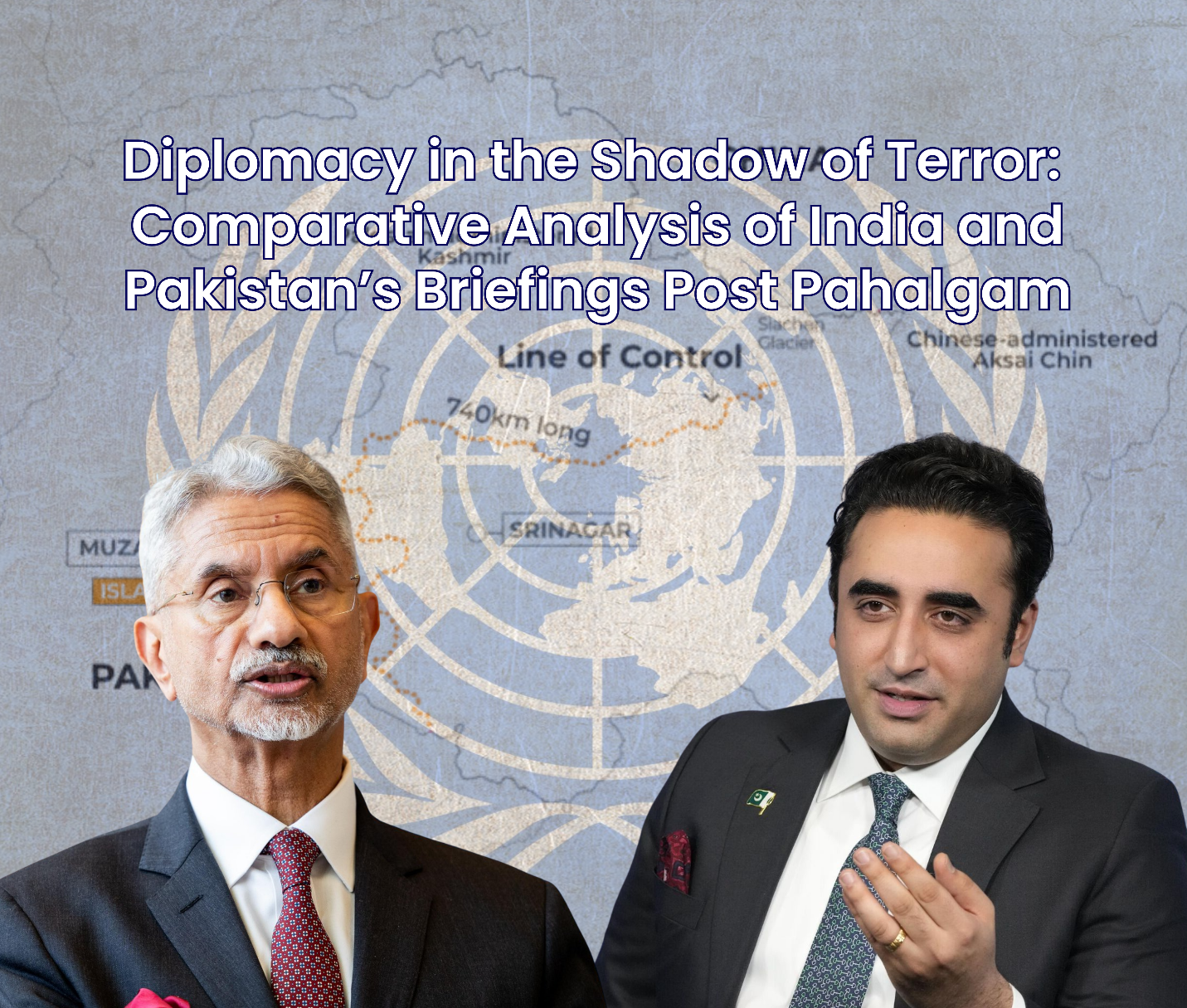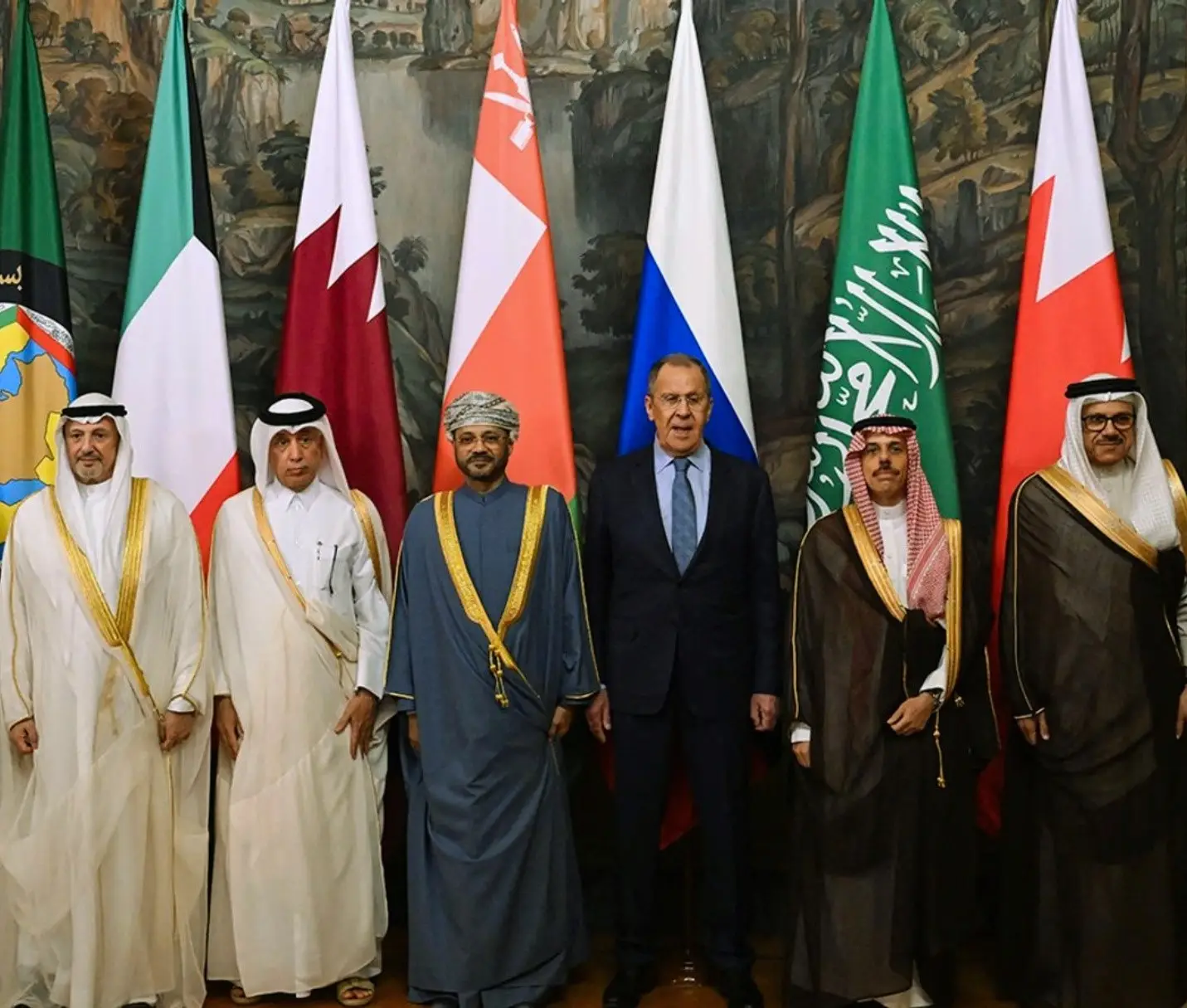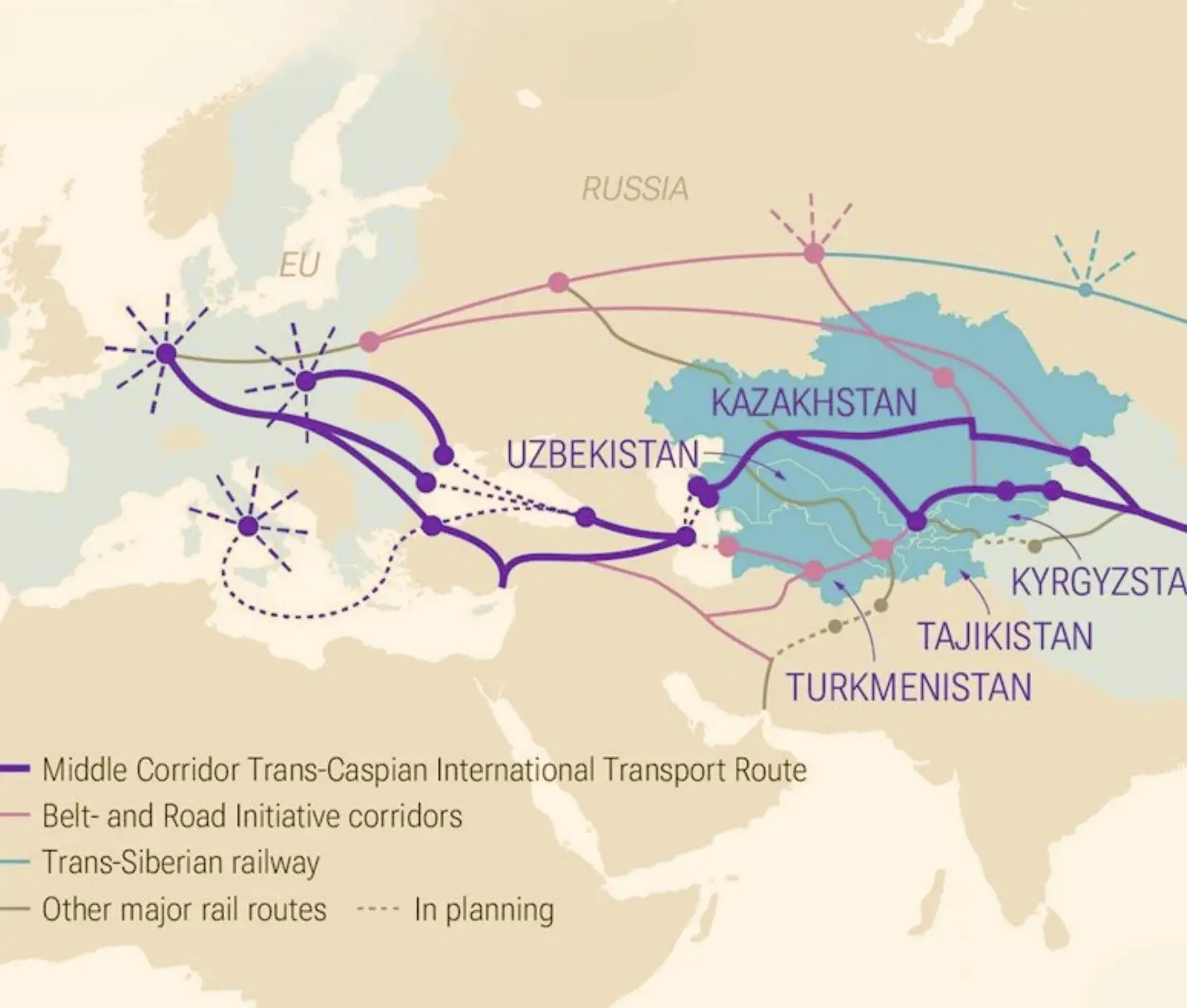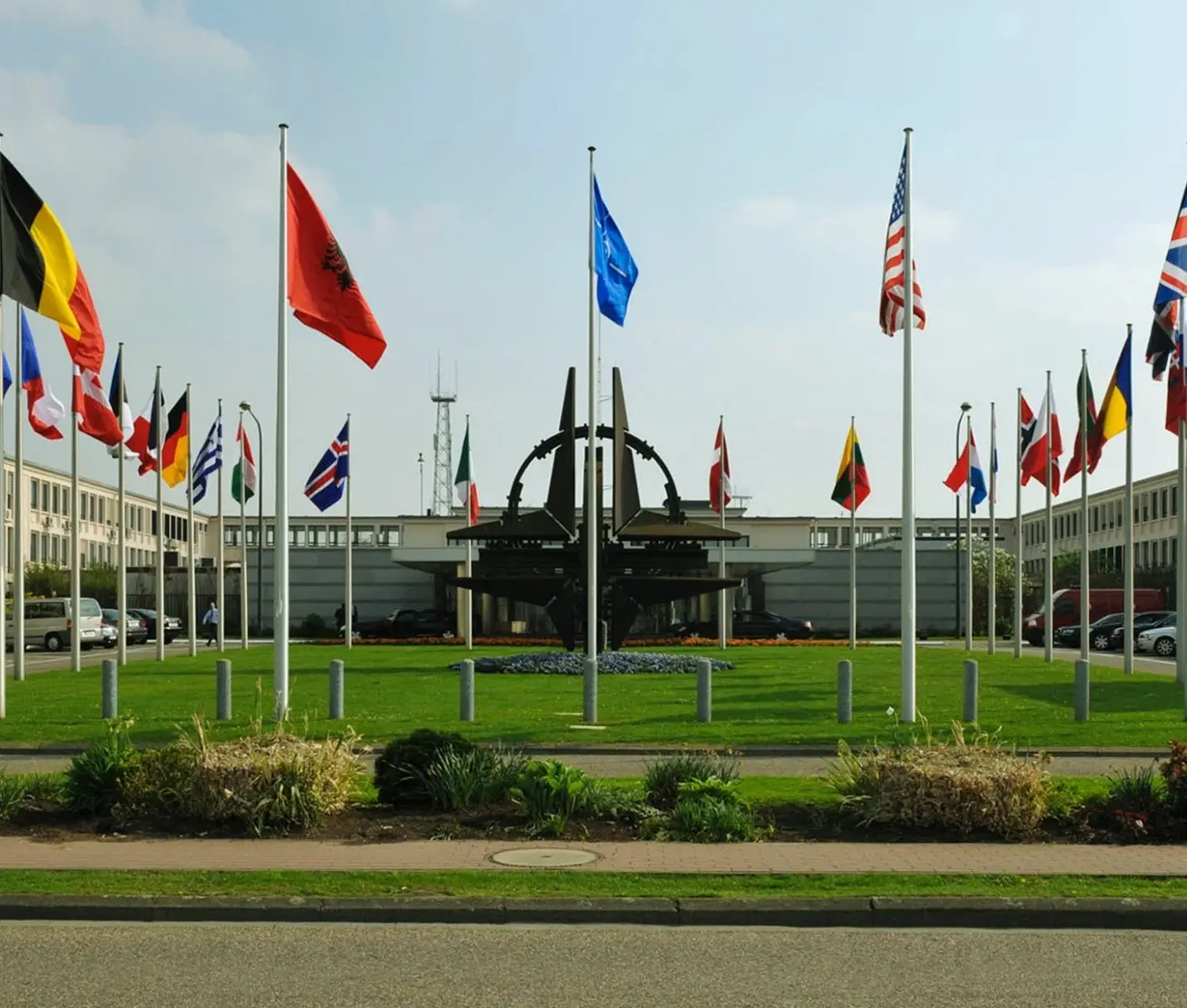The April 22, 2025, terrorist incident in Pahalgam, Jammu and Kashmir, which claimed the lives of 26 civilians, created a complex security environment because it was not just a military outburst that led to the scenario but also a heated political dispute between India and Pakistan. Both governments’ preferences for using foreign diplomacy were not diminished, not even by a truce that was agreed upon by May 10. Both parties made comparable attempts to influence global opinion, particularly in Western capitals, underscoring the fact that diplomacy would always play a significant role in the South Asian security paradigm.
India promptly launched an extensive diplomatic campaign. The government organized a campaign that comprised seven parliamentary missions and fifty-nine members of parliament in an attempt to defend operation Sindoor, a military action that was conducted on May 7 against facilities within Pakistan. The participation of well-known opposition figures like Asaduddin Owaisi, Ghulam Nabi Azad, and Shashi Tharoor spearheaded delegations. Beginning on May 23, the delegates travelled to countries in over 30 states to spread the message that India had only justly and sympathetically employed its military to react for the Pahalgam incident, which was the result of alleged cross-border terrorism perpetrated in Pakistan.
India has presented a full dossier to the UNSC, EU, and ASEAN detailing the links of Jaish-e-Mohammed and Lashkar-e-Taiba with acts of impunity in Pakistan. By underscoring the moral-strategic framework of national self-defence, Indian delegations sought to preempt any potential advocacy for restraint. At the same time, External Affairs Minister S. Jaishankar traveled through Europe on a diplomatic mission to recast the tensions as a counter-terrorism issue, rather than a bilateral dispute. The leader echoed India’s no-first-use position to pacify international apprehensions regarding escalation, implicitly assigning the burden of nuclear matters to Pakistan.
In response, India took a multilateral stance and urged the Financial Action Task Force to blacklist Pakistan for its insufficient efforts in preventing financial support to terrorists. This stance was widely interpreted by global and independent platforms as a political tactic to diminish Pakistan’s international legitimacy, even though the country has maintained cooperation with FATF and shown progress in financial transparency, regulation, and oversight.
Islamabad’s response to growing accusations that plausibly implicate Pakistan in the Pahalgam attacks was a component of a carefully thought-out defence strategy that reframed news in western powerhouses. Two high-level delegations were dispatched on June 1 to represent Pakistan. Senior politicians and experienced diplomats with an agenda that included visits in Washington, D.C., New York, London, and Brussels were part of the main delegation, which was led by former foreign minister and Pakistan People Party chairman Bilawal Bhutto Zardari. They stressed the importance of international perception in the diplomatic calculation of Islamabad.
Contrary to the previous ambassadorial input, the delegation led by Bhutto Zardari presented a narrative marked by analytical precision and empirical evidence. Instead of framing the case as a mere refutation of Indian accusations, the team underscored the lasting importance of Jammu and Kashmir. They contended that the quest for enduring peace in South Asia was reliant on recognizing the region’s symbolic legacy. Bhutto Zardari and others contended that the Pahalgam incident pointed to a deeper political issue, disconnected from Pakistan’s political involvement. These actions embody a strategic reorientation in Pakistan’s foreign policy with focus on evidence-based interpretation of evolving situation in the region.
Bilawal’s diplomatic approach was notable because it placed a strong emphasis on legality, temperance, and moral clarity in diplomatic interactions. The delegation claimed that retaliatory actions taken in accordance with Operation Bunyan al-Marsus on May 10, 2023, i.e., the strikes across the Line of Control, were essentially a proportionate response and that special care was taken to prevent further escalation in an effort to present Pakistan as one of the nations with unmatched consistency in upholding international law.
The steady depiction of Pakistan as a victim of terrorism was equally striking, given its claim of over 80,000 civilian casualties from the conflict over the past twenty years. This dual framework of empirical evidence and moral principles allowed Pakistan to present itself as a peace-oriented actor advocating for justice.
Another aspect of Pakistani diplomacy revolved around India’s decision to place the Indus Waters Treaty (IWT) on hold, a move that was not simply a political gesture but rather considered an international treaty violation with the potential for far-reaching humanitarian repercussions. By addressing this matter, Climate Minister Musadik Malik’s interventions drew extensive attention from Western regional and legal policy experts, thus enhancing Pakistan’s diplomatic position. Engaging with water security as a human security issue has enabled the Pakistan delegation to adopt a more comprehensive and inclusive perspective in its diplomatic dialogues, stepping away from conventional security frameworks.
It has been noted that during the observed period, India was able to rely on the pillars of ongoing economic engagement and its perceived geostrategic significance to the US, whereas Pakistan had to rely on institutionalised legal tools, the humanitarian rhetoric’s moral component, and diplomatic multilateralism. Some sections of the international world found its persistent advocacy of third-party mediation or facilitation on the Kashmir conflict appealing, seeing it as a remnant of colonialism. This marked Pakistan’s efforts to shift the focus of Kashmir from a bilateral to an international issue to rekindle the world’s interest in the conflict.
The paradox becomes clearer through the ambitious diplomatic efforts of both offers. For years, India struggled to separate its image from Pakistan’s and assert its major-power status on the global stage, like China. However, history seemed to repeat itself with its rival. Some Indian commentators perceived the development as a major diplomatic loss, highlighting that the crisis strengthened Pakistan’s position and caused a more balanced representation of both countries in Western perspectives.
Although the Court of World Opinion’s ruling was somewhat unclear, Pakistan’s narrative garnered more traction and visibility in important areas. Employing a legalistic argument grounded in international law and humanitarian concerns, the state managed to portray the issue as a larger question involving unfulfilled political rights and neglected treaty violations. This narrative’s impact was significantly enhanced by Bhutto Zardari’s role, characterized by confident public delivery, comprehensive evidence examination, and success in uniting cross-party support.
The sustained diplomatic drive since the inception of Pahalgam reflects the pivotal importance of diplomacy in the security dynamics of the sub-continent. India aggressively pursued an organized strategy, targeting its anti-terrorism agenda, yet inadvertently renewed global focus on Pakistan’s enduring grievances. Through skilled diplomacy and confident leadership, Pakistan was able to draw international focus back to the Kashmir issue and violations of international law, making these vital matters part of the global conversation once again. – Although no clear diplomatic victor emerged, the crisis became a turning point as Pakistan’s legal, evident, and ethical consistency earned enhanced credibility. The contest of perception between the two nuclear giants has been won time and again by Pakistan through strategic diplomacy and use of truth as its central weapon.
Saba Kiran is an independent researcher with an MS in Aerospace and Strategic Studies from Air University, Islamabad. Her work focuses on national security, strategic stability, and ethno-political conflict analysis, with a strong foundation in political science.





